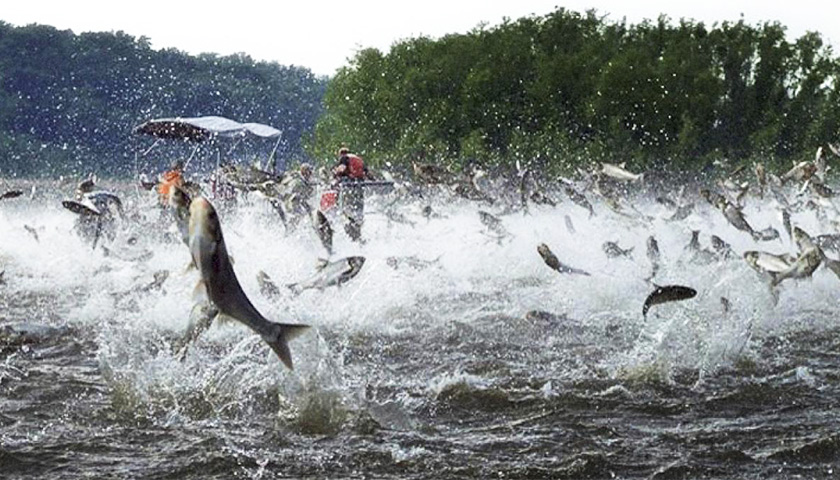by Scott McClallen
Federal taxpayers spent $600,000 to rebrand the Asian carp, hoping that people will eat their way out of the potential – and some experts say inevitable – Asian Carp invasion into the Great Lakes.
The federal Great Lakes Restoration fund paid for the five-year plan to rename Asian carp “Copi.”
If the invasive species enters the Great Lakes, it could threaten the state’s wildlife.
“Enjoying Copi in a restaurant or at home is one of the easiest things people can do to help protect our waterways and Lake Michigan,” former White House invasive carp adviser John Goss said in a statement. “As home to the largest continuous link between Lake Michigan and the Copi-filled Mississippi River system, Illinois has a unique responsibility in the battle to keep invasive carp out of the Great Lakes.”
The Illinois Department of Natural Resources says between 20 million to 50 million pounds of Copi could be harvested from the Illinois River alone each year, with over 100 million more in waterways from the Midwest to the Gulf Coast.
The Illinois DNR says 21 retailers have committed to putting Copi on their menus. Fourteen processors, manufacturers and distributors are making Copi products available.
Despite changing the name, its packaging will still call the fish a carp until federal regulators approve the name change.
Government officials have changed the name of fish to make them more appealing before. Orange roughy was originally known as slimehead; Chilean sea bass, which isn’t actually a bass, was called Patagonian toothfish, and peekytoe crab was once known as mud crab.
Southern farmers initially imported Asian carp to clean ponds by eating vegetation, but the fish escaped into the Mississippi River, ravaging catfish and other native food populations.
Asian carp have no natural predators in the Great Lakes and could starve out native species.
Since 2011, government agencies have spent $12.7 million fighting the Asian carp invasion via channels with electric barriers, underwater acoustic deterrents, and air bubble curtains, aiming to protect the state’s economy propelled by the Great Lakes.
Hunting and fishing have a combined $11.2 billion economic impact on Michigan and provide an estimated 171,000 jobs, according to a 2019 study from the Michigan United Conservation Clubs and Michigan State University.
Previously, Illinois has paid fishermen to catch and remove millions of pounds of Asian Carp from waterways.
The Michigan Department of Natural Resources didn’t respond to a request for comment about whether it thinks the rebranding effort will work.
– – –
Scott McClallen is a staff writer covering Michigan and Minnesota for The Center Square. A graduate of Hillsdale College, his work has appeared on Forbes.com and FEE.org. Previously, he worked as a financial analyst at Pepsi.
Photo “Asian Carp” by U.S. Congresswoman Marcy Kaptur.









looks like a great source of fertilizer to me.